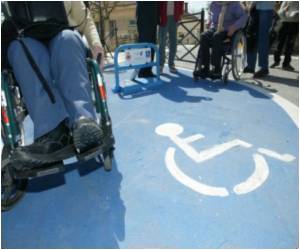
‘In West Africa, violence begins the day children with disabilities are born, as they are seen as a curse from God and do not deserve to live.’
Tweet it Now
The study, conducted in the countries of Guinea, Niger, Sierra Leone and Togo, included data collected from children, community members (parents, teachers and community leaders), and disability stakeholders (local, national, or international organizations that provide support to children with disabilities, and representatives of governmental bodies responsible for disability legislation and policy) across different parts of all four countries participated in the study. This was the first study to explore the experiences of violence against children with disabilities in West Africa from the perspective of children with disabilities and their community. Prior to this study, there was very little research done on violence against children with disabilities in LMIC.
The study identified that in West Africa violence begins the day children with disabilities are born, as they are seen as a curse from God and do not deserve to live- infanticide is a practice that remains in certain regions. The study also found that all children with disabilities experience some form of violence from parents, teachers, peers or community members, and that violence is experienced differently depending on the type of impairment. Children with visual, communicative, and cognitive impairments experiencing the most violence, while children with physical impairments experiencing less. As a result of this pervasive violence, children with disabilities are often kept at home and not attending school, as parents feel the need to protect their children.
"No violence against children is justifiable," continued Nielesani. "This study highlights that the circumstances which lead to violence are myriad and complex - stigma associated with disability, attitudes and traditional beliefs about disabilities, and the perception that children with disabilities are unworthy."
Advertisement









